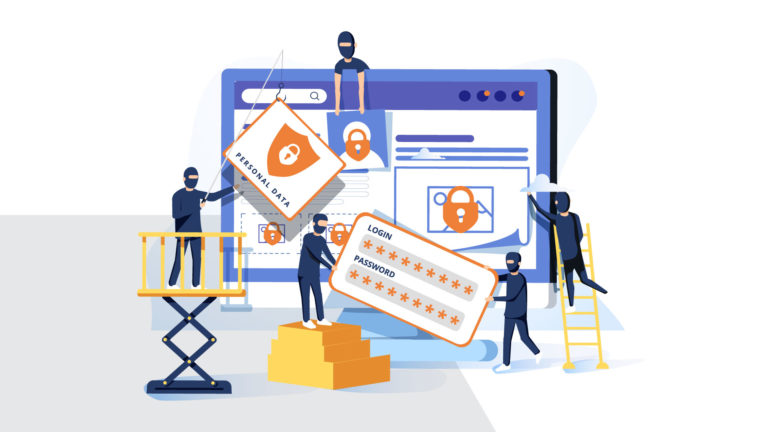
Which Documents Need to be Shredded
Highlighting Local Businesses
Phishing Attacks
To spot a phishing email, we recommend asking yourself these five questions from cybersecurity professional, Mike James, at staysafeonline.org.
- Does the email ask you to confirm personal information?
- Do the web and email address look genuine?
- Is it poorly written?
- Is there an attachment?
- Is the message designed to make you panic?
His advice can be summed up in the following rule:
When in doubt, throw it out: Links in emails, social media posts and online advertising are often how cybercriminals try to steal your personal information. Even if you know the source, if something looks suspicious, delete it.
Imposter Scams
To identify an imposter scam, follow the advice from cybersecurity professional, Nathan Summers, who is the Information Security Officer at Beehive Federal Credit Union:
“Scammers know that your first instinct is to help when you receive an email or call from a government official, family member, or friend asking for help. Don’t immediately fall for it and verify whether the situation is real or not. Criminals have become experts at impersonating those closest to you by exploiting your personal information publicly available online. Remember to maintain strong security on your social media profiles to make is harder for cyber criminals to learn about your life and those close to you.
Always question when people call you claiming to be from a company, such as Microsoft, or from the Government, and demand that you take immediate action. Many scammers play on your fears to motivate you to take their desired action.”
“You’ve won” scams
To identify a “you’ve won” scam, follow the advice of the Department of Homeland Security from the Be Cyber Smart campaign:
Winning isn’t always what it’s cracked up to be. If you receive an email stating you’ve won a prize, the lottery, or a sweepstakes, be instantly on your guard if you are asked to pay a fee or tax for the prize, or if there’s a request for your credit card or bank account information. Here, you can win by not falling for this scam.”
Tech Support Scams
To identify a tech support scam, follow the advice of the Department of Homeland Security from the Be Cyber Smart campaign:
“If it ain’t broke, don’t fix it. If someone claiming to be with a technology company contacts you and wants to diagnose a computer problem you didn’t know you had, or provide tech support you have not requested, stop! If you receive an unexpected pop-up or spam email about an urgent problem with your computer, stop! Scammers are likely using a nonexistent problem to obtain remote access to your computer or banking information.”
Social Engineering Red Flags
This document gives a good overview of methods hackers can use to get you to share personal information.





